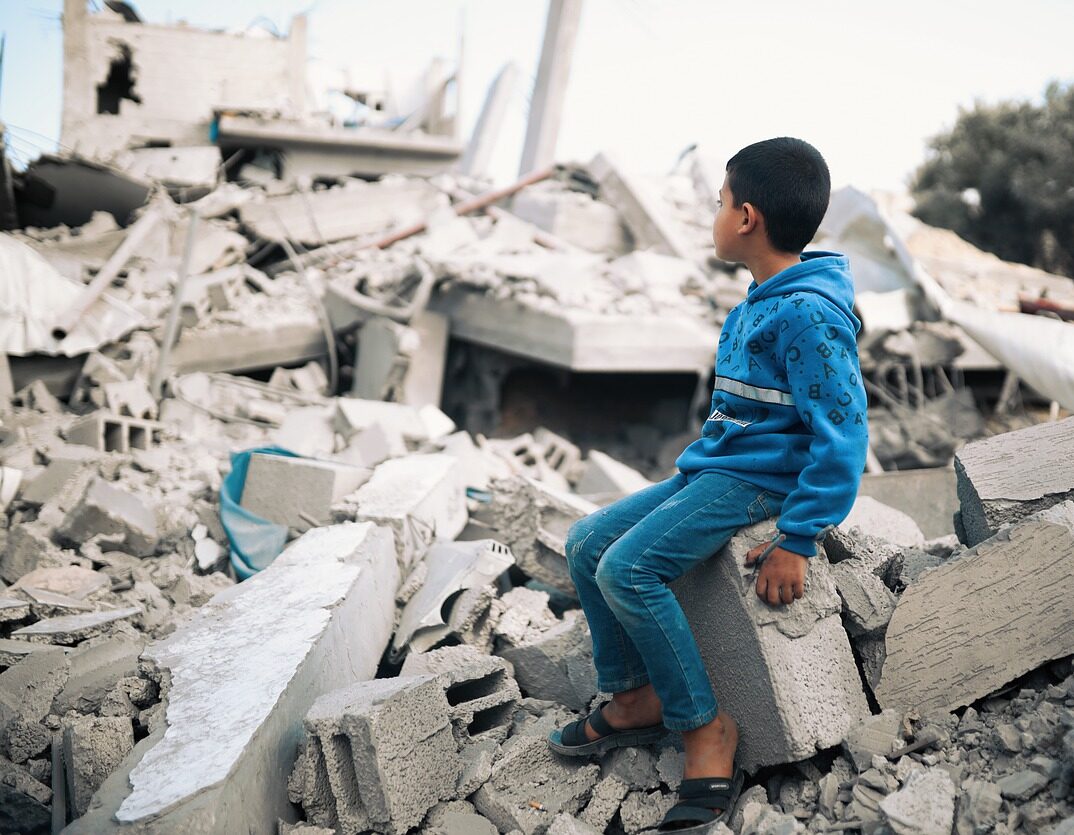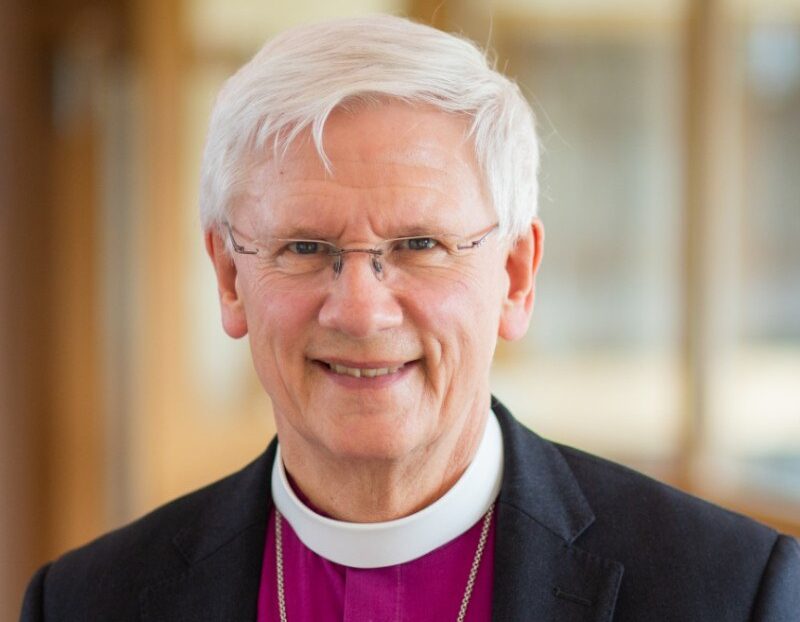Bishop Colin Fletcher, our chair of trustees, shares a seasonal reflection.
17 December 2023
Thankfulness in difficult times
I don’t know about you, but every now and then I’m struck by the fact that my daily Bible readings chime in exactly with things that I am experiencing, or something that my friends are going through, or events that are being played out on a broader national or international canvas. And what makes that even more noteworthy is that those pieces will have been commissioned and written many months before any of us come to read them.
One reason for that, of course, particularly when they refer to dark times, is that history and human experience have a habit of repeating themselves, not least when it comes to ‘man’s inhumanity to man’, to quote Robert Burns.
The rape of Tamar (2 Samuel 13), as Karen O’Donnell points out in the current edition of Guidelines, together with the cycle of violence that followed it, is ‘a text that rarely sees the light of day in our churches’. Yet it’s there in scripture, and reading it in the same week as the unfolding accounts of the horrors that happened in southern Israel on 7 October, coupled with the humanitarian catastrophe now taking place in Gaza, made the Old Testament account feel chillingly familiar. Or again, Martyn Percy, in his superb book An Advent Manifesto, has not been afraid to open up some of the darker elements of the Christmas story: the abuse of power, homelessness and infanticide. These are elements that can easily get lost if all we see are the standard school and church soft-edged presentations of the nativity, but they’re a vital part of the story of the birth of the Christ child, in all his vulnerability.
In the light of those contrasting elements of the Christmas story, I’ve been reflecting on St Paul’s injunction to ‘Give thanks in all circumstances’ (1 Thessalonians 5:18) and asking myself what that means when so much that is difficult and complex, and plain wrong, is going on all around us. What does it mean when we look to Ukraine or Israel or Gaza? What does it mean when, more locally, in BRF Ministries, we cannot take advantage of the many opportunities that present themselves because we lack the financial resources to do so and, indeed, when we are having to cut back in some areas when things overall are going so well?

What does it mean to ‘give thanks in all circumstances’ when we look to Ukraine or Israel or Gaza?
Don’t follow the ostrich
The first thing, I’d suggest, is to resist the temptation to say that bad, or even difficult, things are just an illusion and that, taking our cue from the ostrich, all we need to do is to bury our heads in the sand for long enough and they’ll go away. As the psalmist reminds us time and again, it’s far better to acknowledge our thoughts and feelings amid all the confusions of life. God can handle our responses to bad things, and we don’t need to try to protect either him or ourselves from them. Honesty is, it seems to me, a prerequisite to ‘giving thanks in all circumstances’.
Secondly, and this relates to that first point, I always discourage people, myself included, from pretending that something really doesn’t matter because there’s someone in a worse position than they are. Over the years I’ve lost count of the number of times when I’ve been talking with someone in considerable pain or facing a major challenge in life whose response has been along the lines of ‘Well, at least I haven’t got terminal cancer.’ While I understand the sentiment, in my experience it is far more helpful to acknowledge how things are for you rather than shifting the focus elsewhere.

I always discourage people from pretending that something really doesn’t matter because there’s someone in a worse position than they are.
All that by way of a prelude…
Giving thanks in all circumstances doesn’t mean that we have to thank God for the bad things that happen to us or to others, somehow justifying them as a result. There’s no sign, for instance, in 2 Corinthians that St Paul enjoyed being stoned, shipwrecked or being beaten to within an inch of his life. The crucifixion was the greatest act of redemption in history, bringing the greatest good the human race has ever known, but it was also a cruel, vindictive, unjust ending to a blameless life, and should be named as that.
Rather, what I come back to time and again is that God never absents himself from the human or the universal story, even if that is how we feel at times. The challenge of ‘Giving thanks in all circumstances’ is the challenge of faith and hope to believe that he remains ultimately and completely in control whatever those circumstances may be.
And that brings us right back to the story of that first Christmas. All sorts of things happened, both to individuals and to groups of people, which were far from being delightful and heart-warming, but despite all the horrors, the light came into the world and the darkness did not obliterate it. God was there, and in control, throughout. And still he is today.
With every blessing for Advent, Christmas and Epiphany.
Bishop Colin Fletcher

